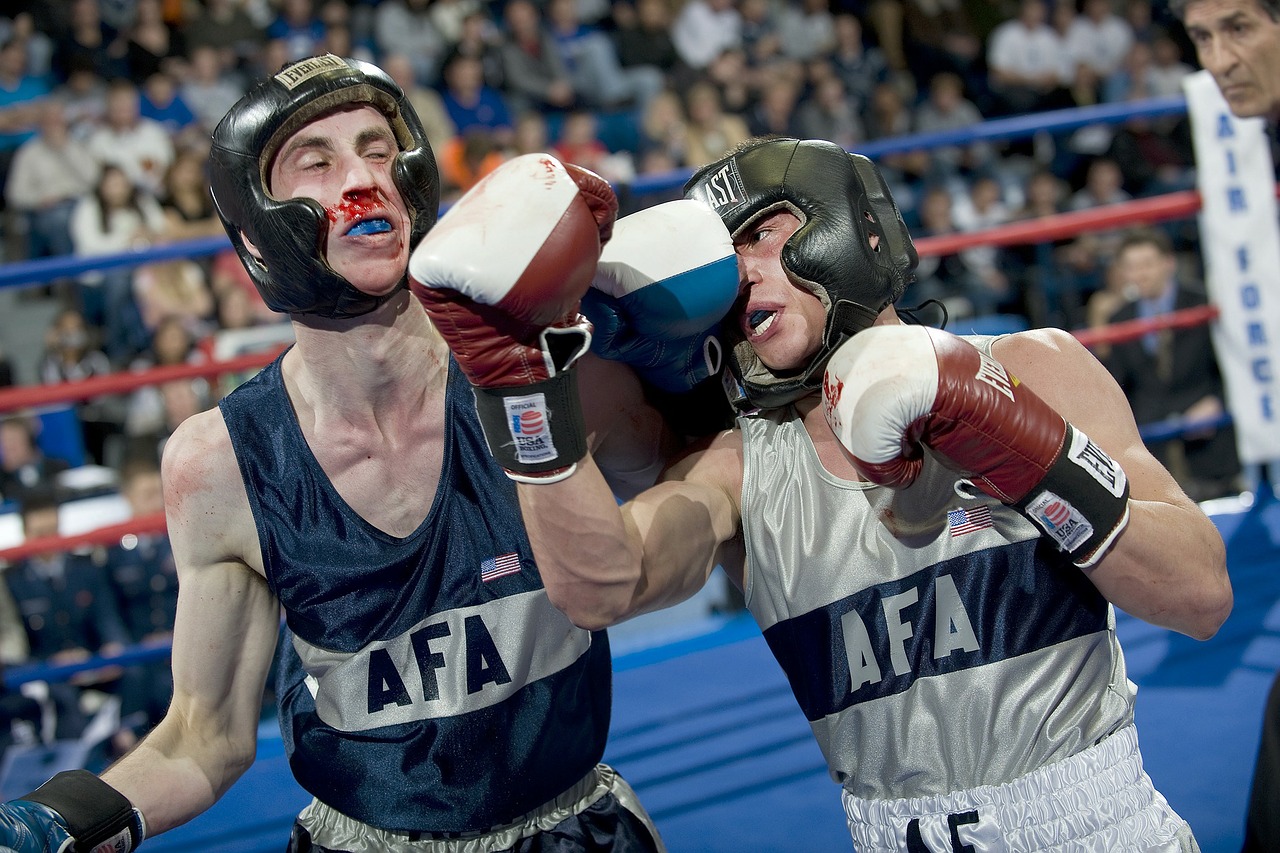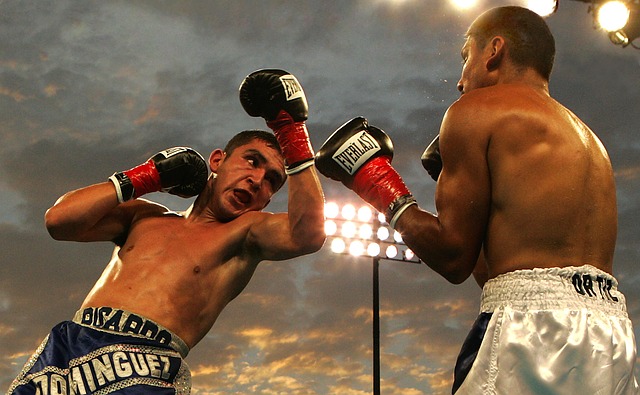- Job Seeker Resources
- |
- Last Updated: October 17, 2016
Against the Ropes: Appreciating the Complex Role of Boxing Trainers

Boxing is a rough and physical sport, that’s for sure, which is why it’s used as a metaphor for life so often. You get knocked down, but you get back up to fight another day; and although the sport requires self-awareness and respect from others, it doesn’t always work out that way.
Believe it or not, a professional boxing match doesn’t end when the bell rings.
In other words, these fighters are boxing for much more than what we see on television. A boxer at some point in time will always find themselves cornered, with their backs against the ropes. The one question I’ve always asked myself was, “Where does it all begin?” and honestly, the answer still isn’t clear.
Boxing, like most sports, is complex and contains a variety of components and relationships in order to make everything come together. Take for example, a training crew.
It seems like the only time we see them is either before the match, or after. In all honesty, a training crew is one of the most important components of boxing. A boxer has no chance of winning a fight without the proper training, making the relationship between the fighters and their trainers unbreakable.
So what does the training crew have to deal with, you ask?
Well, normally, the training crew is heavily involved in the fighter’s life inside and outside the ring. Dealing with injuries such as temporomandibular, an injury to the main joint within the jaw, concussions, broken bones, and of course, shoulder dislocation. They’re also responsible for making sure the fighter is in good health, both mentally and physically, making their job even more strenuous.
On The Ropes (A Fight Against Society)
When a fighters pushed up against the ropes of the boxing ring by his/her opponent, they’re in big trouble. But what if the opponent is the media? A platform that contains millions if not billions of contributors and spectators. What will you do then?

That’s just what fighters and trainers are faced with every time they step into the ring. As a matter of fact, there are unlimited ways in which society influences behavior, especially when it comes to sports. Stories about sports make up a large part of today’s news coverage. In particular, information and news about star players are what drive headlines.
For a professional boxer, this means losing the fight could result in a hailstorm of Facebook post, Tweets, and Instagram comments; resulting in unwanted attention, which could cause the fighter to lash out against the public. This tactic, however, would do more harm than good and could even damage the boxer’s reputation.
Now, although professional athletes have managers to assist them with things like this, the training crew in this case ultimately spends a majority of time with the fighter. Which means, the fighter will typically value their opinion over their manager’s when it comes to situations like this.
In the end, a training crew not only teaches fighters how to survive in the ring, they also teach warriors (boxers) defense skills against the cruel and harsh public.
Role With The Punches
To roll or ride with the punches, or to adopt easily to adverse circumstances, comes from the fighting maneuver of moving or rolling one’s head and body away from a blow to lessen its impact. If the fighter is caught off guard though, the blow he/she receives could result in serious injury.
When fighters are injured during a fight and too stubborn to quit, it’s not only up to the referee to call the match, it’s also up to the training crew to intervene in order to prevent further injury. In this case, the training crew, like the referee, must recognize signs that indicate whether or not when their fighter is “punch drunk,” or can’t remember where he/she is.
By way of example, let’s assume a fighter sustains one of the worse injures during a boxing match called, boxer’s fracture. The typical signs of boxer’s fracture are pain or tenderness centered in a specific location on the hand, which corresponds to one of the metacarpal bones, around the knuckle. Let’s also assume that you (the reader), are a part of a training crew.
You’ve recognized the signs, and got your fighter back on the track to recovery. Your job is done, right? Wrong.
As the trainer, you’re also responsible for making sure the fighter is doing everything in their power to speed up the recovery process. In the world of boxing, sponsorships and endorsements are important to a fighter's career, reputation, and most importantly, their finances.
If a fighter is out too long, he/she could miss the opportunity to gain a big contract from companies like Nike, Adidas, or Gatorade.
With time working against both of you, you have to manage training your fighter while at the same time nursing his/her injury, on top off making sure they don’t re-injure the already broken arm.
Is the pressure getting to you?

Throwing In The Towel and Hanging Up The Gloves
A professional boxer's career all comes down to their mobility and the tactics taught to them by trainers. When they can no longer use those tactics to win fights, a fighter, along with the training crew, must do one of two things.
- Depart. Sometimes it might be in the fighter’s best interested to let go of their training staff, or if it’s the other way around, letting go of the boxer. Reputation is everything in this sport, and if you have someone that could damage your credentials, this could ruin your chances to make it far in this profession.
- Surrender. As humans, we always strive to be in control. Regardless of the situation, we hate losing this ability. The reality is, we aren’t in control of things. When our body tells us it’s time to retire from something we love, we need to listen to it. From a boxer's point of view, it’s always in your best interest to pay attention to your body since 1 in 10 injuries is a traumatic brain injury (TBI) which can increase after taking so many blows. Trainers, on the other hand, might have to slowly come to this conclusion. Whatever the case may be, don’t ignore the signs.
“I hated every minute of training, but I said, ‘Don’t quit. Suffer now and live the rest of your life as a champion.’” - Muhammad Ali

Guest author Herman Davis loves being active and finds any reason to go outside.
If you can’t catch him reading his favorite books, you might be able to find him playing football, or spending time with his family.
Follow him on Twitter at @Davis241. Thanks!
References
- http://onlinemasters.ohio.edu/preventing-concussions-in-sports/
- http://www.emergencydentistsusa.com/tmd-temporomandibular-disorder/
- http://abcnews.go.com/Health/AlzheimersQuestions/story?id=7389985
- http://www.depts.ttu.edu/comc/research/outpost/blog/social-media-sports.php
- http://www.webmd.com/a-to-z-guides/boxers-fracture#2

by: Brian Clapp
Originally Published: October 17, 2016
Originally Published: October 17, 2016
Sign In or Register to access all articles and insider tips for help in your job search.
Search for Sports Jobs
RELATED JOBS
MS 7th Gr Boys Head Basketball Coach - Olentangy Hyatts Middle School
Find a Job »
Olentangy Local School District
Powell, OH
There will be a Coaching opportunity available at Olentangy Hyatts Middle School. Qualified...
Assistant Director of Athletic Communications & MarketingCapital University
Columbus, OH
The successful candidate will work alongside the Director of Athletic Communications & Marketing...
PAID Local Photographer Needed (OSU Football Tailgates)Columbus, OH
PAID - Local Photographer Needed (OSU Football Tailgates) compensation: Based on experience /...
Assistant 8th Grade Football CoachGahanna Jefferson Public Schools
Columbus, OH
Assistant 8th Grade Football Coach Gahanna Jefferson Public Schools Educational Service Center...
Assistant 7th Grade Football CoachGahanna Jefferson Public Schools
Columbus, OH
Assistant 7th Grade Football Coach Gahanna Jefferson Public Schools Educational Service Center...
RELATED RESOURCES
Find the Right Job Faster
Create Your FREE Account Today to Unlock Exclusive Career Tools
- Get personalized job matches sent to your inbox every day
- Connect directly with employers before your competition
- Advance your career with expert advice on interviewing, salary negotiation, and more
We value your privacy




